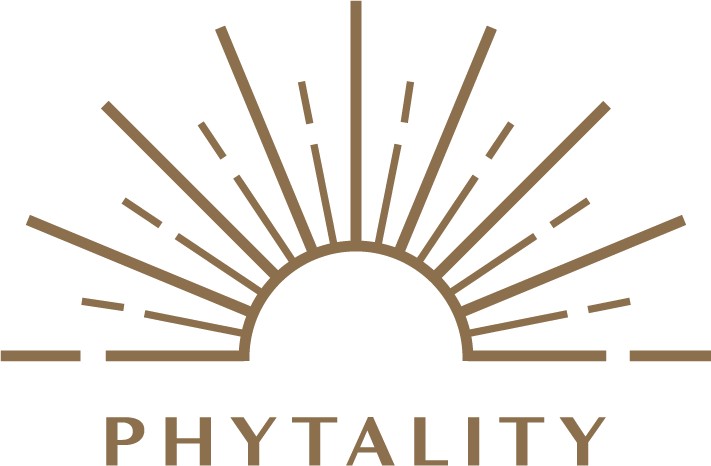
Breastfeeding is an amazing way to provide your newborn with essential water, proteins, fats, carbohydrates, vitamins, and minerals, as well as enzymes, hormones, and antibodies. It's no wonder why healthcare professionals call it nature's perfect food.
One of the essential nutrients of breast milk is docosahexaenoic acid, or DHA, an omega-3 fatty acid. Because a mother's diet influences the levels of DHA in breast milk, it has become commonplace for pregnant women to supplement.
In this article, we'll dive into the benefits and risks of DHA supplementation, the impact of DHA on breast milk, and the recommended dosage for breastfeeding mothers.
Should You Take DHA Supplements If You Are Breastfeeding?
You certainly should! — Taking DHA supplements while breastfeeding is not only safe but also highly beneficial for both you and your baby DHA is crucial for your baby's brain and eye development.
Adding these supplements to your regimen can quickly elevate your DHA levels, providing valuable nutrients for you and your child
The Importance of DHA for Babies
Particularly important for the development of the brain and the eyes DHA is a critical component of cell membranes, particularly in nerve cells(1). Therefore, it plays a significant role in the structure and function of the brain and visual system.
In fact, studies have shown that DHA deficiency in infants is associated with lower cognitive scores and behavioural problems.
On the other hand, infants who receive adequate amounts of DHA tend to have better cognitive and behavioural outcomes.
Studies have also shown that DHA is necessary for the development of visual acuity, contrast sensitivity, and colour vision in infants.
How DHA Affects Breast Milk
If a mother's diet is deficient in DHA, her breast milk will also be deficient in DHA. This is why healthcare professionals often recommend that breastfeeding mothers consume foods high in DHA, such as fatty fish, or to consider supplementation.
Alternatively, some mothers may choose to take DHA supplements to increase the amount of DHA in their breast milk. Studies have shown that when a mother consumes more DHA, her breast milk tends to have a higher percentage of omega-3 fatty acids, including DHA(2).
Benefits of Taking DHA Supplements While Breastfeeding
-
Promotes Infant Development: As mentioned earlier, DHA is crucial for infant brain and eye development. When a mother takes DHA supplements, it increases the amount of DHA in her breast milk, which can lead to better cognitive and visual outcomes for her baby.
-
May Reduce Postpartum Depression: Studies have shown that there is a link between low levels of omega-3 fatty acids and postpartum depression(3). Taking DHA supplements while breastfeeding may increase omega-3 fatty acid levels and reduce the risk of postpartum depression.
-
Supports the Mother's Health: DHA is an essential nutrient for adults as well, and it can help support a mother's heart health, brain function, and eye health.
-
Safe and Well-Tolerated: DHA supplements are generally considered safe and well-tolerated, with few reported side effects. However, it is always recommended to consult with a healthcare provider before starting any new supplements.
-
May Increase Breast Milk Supply: Some studies have suggested that DHA supplements may increase breast milk supply in breastfeeding mothers. However, more research is needed to confirm this benefit.
Are there Risks of Taking DHA Supplements While Breastfeeding?
Here are some possible risks of taking DHA supplements while breastfeeding:
-
Contamination: DHA supplements may come from fish sources that are contaminated with toxins such as mercury, which can be harmful to both the mother and the baby. Always choose a clean source such as Clean Omega.
-
Interactions with Medications: DHA supplements can interact with certain medications, such as blood thinners. Therefore, it is important to speak with a healthcare provider before starting any new supplements to avoid any potential drug interactions.
-
Allergic Reactions: Some people may be allergic to fish oil or other ingredients in DHA supplements, which can cause allergic reactions.
What's the Recommended Dosage of DHA Supplements While Breastfeeding?
The recommended dosage of DHA supplements while breastfeeding can vary depending on a mother's individual circumstances. Here are some general guidelines for the recommended dosage of DHA supplements while breastfeeding:
-
Adequate Intake: The Adequate Intake (AI) level of DHA for lactating women is 200-300 milligrams per day. This level is based on the amount of DHA typically found in breast milk from women with a typical Western diet.
-
Higher Dosage: Some studies have suggested that higher dosages of DHA, such as 600-1000 milligrams per day, may have additional benefits for both the mother and the baby.
Three Ways for Breastfeeding Mums to Get More DHA
Here are three ways Mums can increase DHA levels:
-
Supplementation with Phytality Clean DHA: One of the most straightforward ways to ensure adequate DHA intake is through supplementation. Phytality Clean DHA offers a plant-based, vegan-friendly option. Each capsule contains 250mg of DHA extracted from a natural strain of micro-algae, Schizochytrium sp. This supplement is sustainably produced, solvent-free, and offers high DHA concentration. It is also certified vegan and made in Europe.
-
Dietary Intake of Fish: Consuming fish rich in omega-3s, such as salmon, trout, and herring, is another effective way to get DHA. Aim for 8 to 12 ounces a week to provide both you and your baby with adequate DHA levels.
-
DHA-Fortified Infant Formula: For mothers who are unable or choose not to breastfeed, DHA-fortified infant formulas offer a reliable alternative. These formulas contain synthesized versions of essential fatty acids naturally found in breast milk, meeting FDA nutrient specifications for infant formulas.
Each of these methods can serve as a standalone or combined approach to meet individual DHA needs. As always, consultation with a healthcare provider is recommended for personalized advice.
Further Reading
-
The DHA Intake and Measurement of Neural Development (DIAMOND) Study: This randomized controlled trial examined the effects of DHA supplementation on cognitive and visual outcomes in infants. The study found that infants who received DHA supplementation had higher cognitive scores and better visual acuity than those who did not receive supplementation.
-
The Maternal and Infant Nutrition Interventions in Matlab (MINIMat) Study: This randomized controlled trial examined the effects of prenatal and postnatal nutritional interventions, including DHA supplementation, on infant growth and development. The study found that infants born to mothers who received DHA supplementation had higher cognitive scores and better visual acuity than those born to mothers who did not receive supplementation.
-
The Avon Longitudinal Study of Parents and Children (ALSPAC): This large cohort study followed over 14,000 pregnant women and their children to examine the effects of maternal nutrition, including DHA intake, on child health and development. The study found that higher maternal DHA intake during pregnancy was associated with improved cognitive and behavioral outcomes in children.
FAQs
What is DHA?
Docosahexaenoic acid, or DHA, is an omega-3 fatty acid that is critical for brain and eye development in infants. It is found naturally in fatty fish and can also be taken in supplement form.
Why is DHA important for breastfeeding mothers? DHA is important for breastfeeding mothers because it is an essential nutrient for infant development, particularly for brain and eye development. Breast milk is an excellent source of DHA, and the amount of DHA in breast milk is influenced by a mother's diet.
Can taking DHA supplements while breastfeeding be harmful?
Taking DHA supplements while breastfeeding can have potential risks, including contamination, interactions with medications and, rarely, allergic reactions. However, these risks can be minimized by choosing a reputable brand of DHA supplement and consulting with a healthcare provider before starting any new supplements.
What is the recommended dosage of DHA supplements for breastfeeding mothers?
The recommended dosage of DHA supplements for breastfeeding mothers is typically 200-300 milligrams per day, but higher dosages may have additional benefits. It is important to consult a healthcare provider to determine the appropriate dosage for individual needs and circumstances.
Are there any natural food sources of DHA?
DHA can be obtained naturally from food sources such as fatty fish, algae-based supplements, and fortified foods. Consuming a diet high in DHA can help ensure that a mother's breast milk contains adequate amounts of DHA for her baby's optimal health and development.
